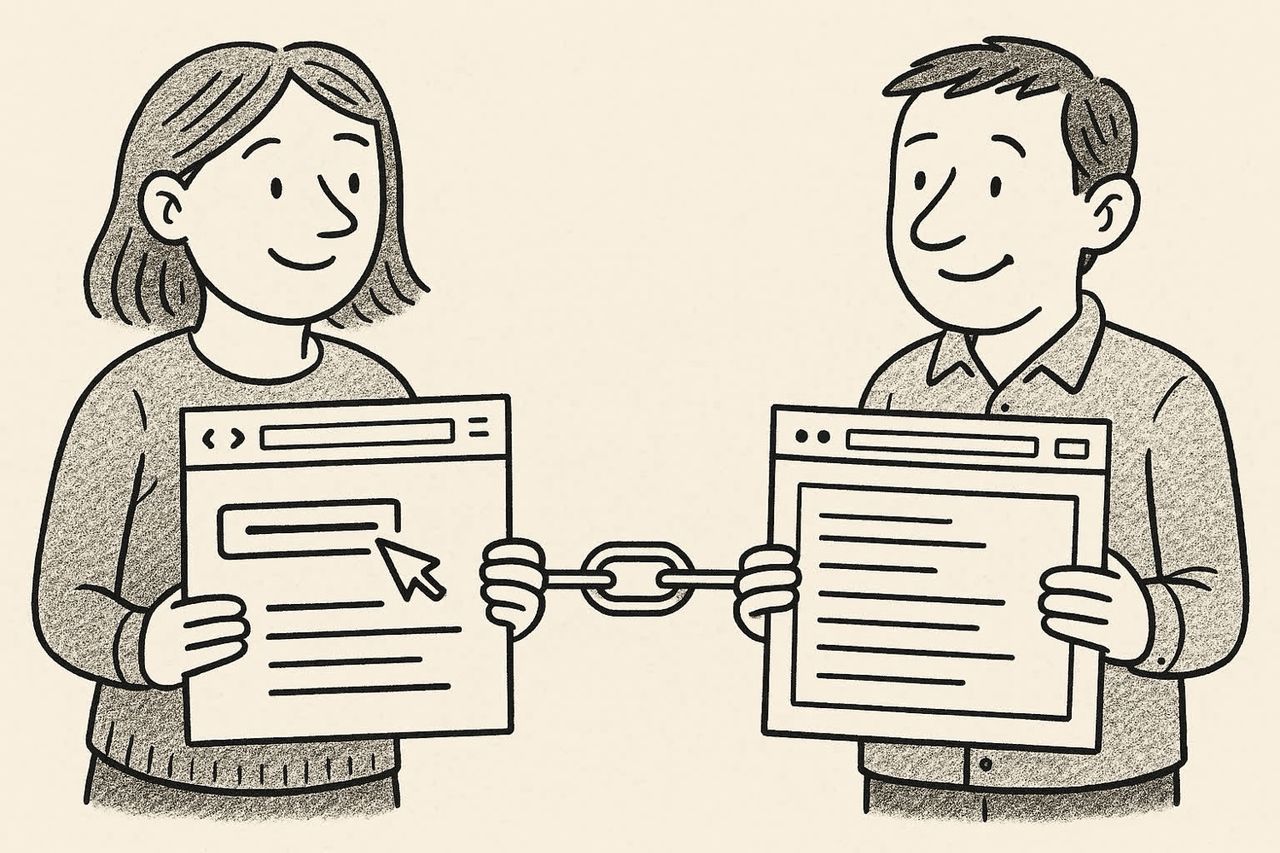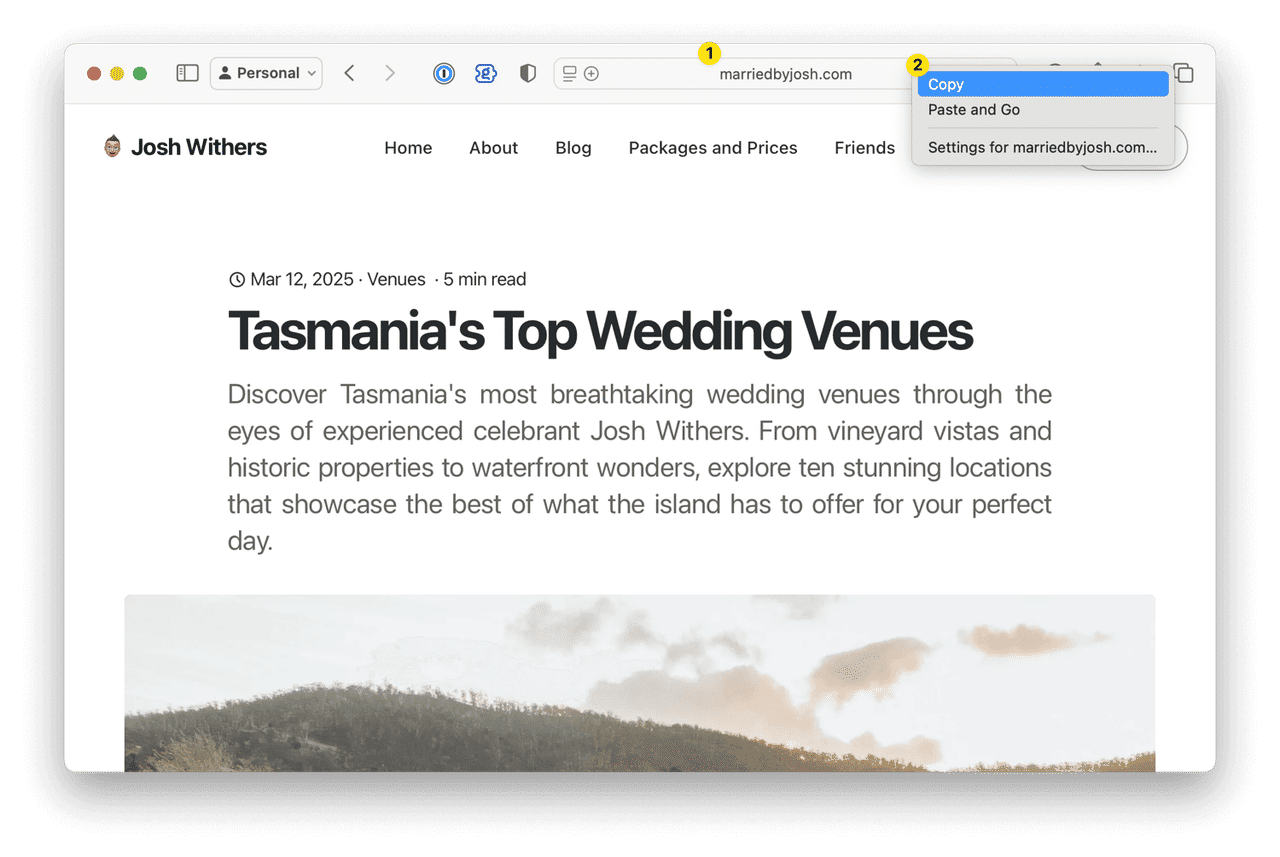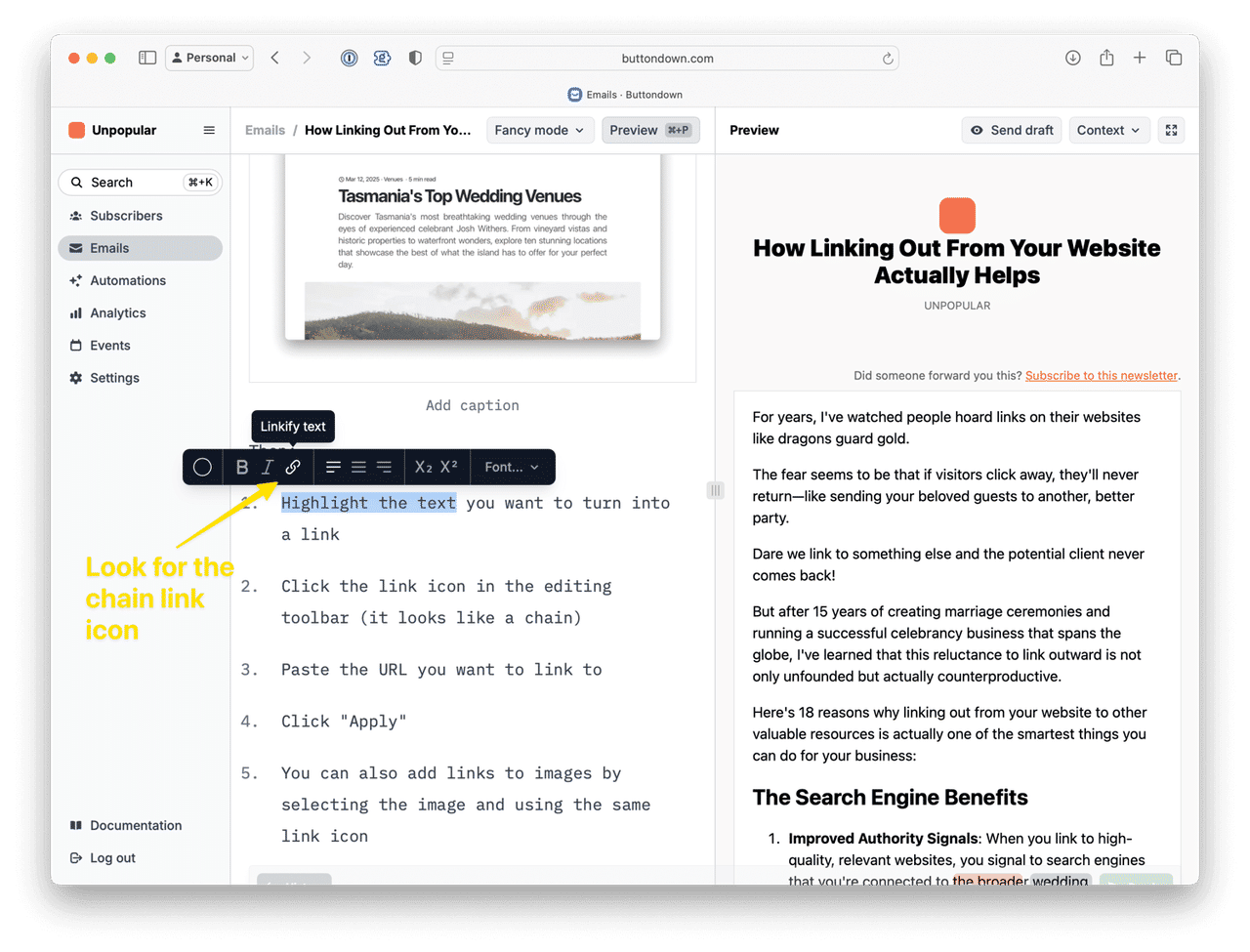For years, I’ve watched people hoard links on their websites like dragons guard gold.
The fear seems to be that if visitors click away, they’ll never return—like sending your beloved guests to another, better party.
Dare we link to something else and the potential client never comes back!
But after 15 years of creating marriage ceremonies and running a successful celebrancy business that spans the globe, I’ve learned that this reluctance to link outward is not only unfounded but actually counterproductive.
Here’s 18 reasons why linking out from your website to other valuable resources is actually one of the smartest things you can do for your business:
The Search Engine Benefits
- Improved Authority Signals: When you link to high-quality, relevant websites, you signal to search engines that you’re connected to the broader wedding community. Google’s algorithms reward websites that provide value, and sometimes that value includes pointing visitors to complementary services.
- Topic Relevance Reinforcement: Linking to other wedding-related content helps search engines better understand what your site is about. If you’re linking to quality venue websites, photographers who share your style, or blogs about ceremony ideas, you’re reinforcing your own relevance in the wedding space.
- Fresh Content Indicators: Regular updates to your outbound links (especially when linking to current, trending content) show search engines that your site is actively maintained—a key factor in search rankings.
- Local SEO Enhancement: Linking to local wedding venues, suppliers, and businesses strengthens your geographical relevance. This is crucial for celebrants, as most couples search for wedding services within their area. Check out my friends page as an example.
- Natural Link Patterns: Websites with a healthy mixture of inbound and outbound links appear more natural to search algorithms than those that never link externally. One-way linking structures can actually trigger spam filters.
The Human Benefits
- Establishing Trust: When you’re generous with your knowledge and resources, couples see you as confident and helpful rather than desperate to trap them on your page. This builds trust—the foundation of any booking decision.
- Creating Value: A website that helps couples navigate the entire wedding planning process (not just celebrancy) becomes a valuable resource they’ll return to and share with others.
- Building Industry Relationships: Linking to colleagues can lead to reciprocal arrangements or referrals. I’ve received countless bookings from photographers, venues, and planners I’ve highlighted on my site.
- Demonstrating Expertise: Curating a thoughtful collection of links shows you know your industry inside and out. It positions you as an expert who understands the broader wedding landscape.
- Creating a Better User Experience: Let’s be honest—if a couple is looking for photographer recommendations, they’ll find them whether you provide links or not. By offering helpful shortcuts, you’re making their planning process easier.
The Answer Engine Revolution
- Preparing for AI Search: The future of search is moving toward AI-powered answer engines like ChatGPT, Claude, and Google Gemini. These systems look for websites that provide comprehensive information ecosystems rather than isolated islands of content.
- Building Digital Neighbourhoods: Answer engines evaluate how your website fits within its digital “neighbourhood.” A well-connected site that links to and receives links from other quality wedding businesses will rank better in these new systems.
- Demonstrating Context Awareness: Outbound links show that you understand your place in the wedding ecosystem—you’re not just selling a service but helping couples navigate an entire experience.
Practical Ways to Link Out
- Create a “Recommended Vendors” Page: Curate a list of your favourite venues, photographers, stylists, and caterers. Make it genuine—only include people whose work you truly admire.
- Write Blog Posts with Resource Lists: Articles like “10 Hidden Wedding Venues in the Huon Valley” or “My Favourite First Dance Songs from 2023 Weddings” naturally include outbound links.
- Link to Supporting Information: When discussing legal requirements, link to official government sources. When mentioning cultural traditions, link to authoritative explanations.
- Highlight Real Weddings: When featuring weddings you’ve performed, include links to the other vendors involved. They’ll appreciate the recognition, and it creates natural networking opportunities.
- Maintain a Wedding Planning Resources Section: Create a library of helpful articles, tools, and guides from across the wedding industry that couples might find useful.
- Link to Your Existing Listings Online: A link from your own website to your listings on all the different directories and locations where you have citations confirming your business’s existence and perhaps reviews or information are a signal of trust in that listing, which builds more value in the link they provide back to you. So if you’re in a wedding directory, find a way to write a blog post about that directory and link to it.
Finding Balance
Remember, the goal isn’t simply to scatter random links throughout your site. Each outbound link should serve your visitors and reinforce your expertise and place in the wedding community.
Your website’s north star remains unchanged:
- Being found by the right people
- Providing enough value that they inquire about your services
- Converting that inquiry into a booking
Thoughtful outbound links don’t undermine these objectives—they enhance them by creating a more valuable, authoritative, and trusted online presence.
P.S. “What Exactly Is a Link and How Do I Create One?”
A link (or hyperlink) is simply text or an image on your website that, when clicked, takes the visitor to another webpage—either on your own site or someone else’s.
Links to pages on your own site are called inlinks, links to pages on other websites are called outlinks and for the recipients of that link they call it a backlink because you are linking back to them.
They typically appear in blue and underlined, though your website design might style them differently.
How do you create a link? In your web browser visit the page you want to link to and copy the URL from the address bar.
Then:
- Highlight the text you want to turn into a link
- Click the link icon in the editing toolbar (it looks like a chain)
- Paste the URL you want to link to
- Click “Apply”
- You can also add links to images by selecting the image and using the same link icon
Remember to check your links periodically to ensure they still work. Nothing undermines trust faster than sending visitors to broken links (deadlinks) or pages that no longer exist!


